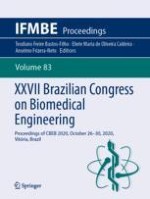2022 | OriginalPaper | Buchkapitel
Tinnitus Relief Using Fractal Sound Without Sound Amplification
verfasst von : A. G. Tosin, F. S. Barros
Erschienen in: XXVII Brazilian Congress on Biomedical Engineering
Aktivieren Sie unsere intelligente Suche, um passende Fachinhalte oder Patente zu finden.
Wählen Sie Textabschnitte aus um mit Künstlicher Intelligenz passenden Patente zu finden. powered by
Markieren Sie Textabschnitte, um KI-gestützt weitere passende Inhalte zu finden. powered by
